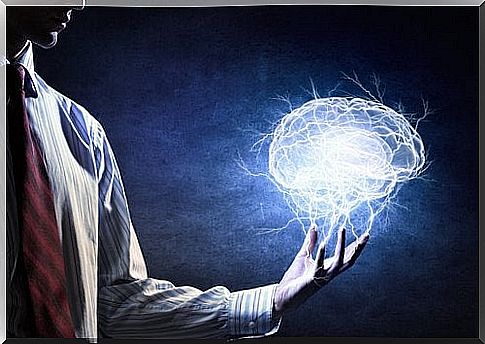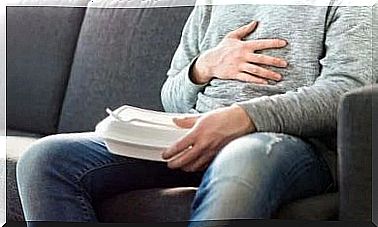5 Tricks To Stop A Panic Attack

Do you know what are the best tricks to stop a panic attack? Panic attacks are frightening and debilitating experiences for those affected.
The triggers are not always known. In addition, the exact causes of these exaggerated reactions to stimuli (ie irrational fear and the feeling that we are about to have a heart attack) are not yet fully understood.
What is certain is that, during a panic attack, the patient loses complete self-control. This experience can be devastating.
We must remember that each of us can have a panic attack at any time. No one is immune to this intense fear that can trigger strong and unpredictable reactions in the body.
Another aspect worth noting is that, after having a panic attack for the first time, other such experiences may follow. If you are facing this problem, do not hesitate to ask for the help of a specialist.
At the same time, understand that although a psychologist or psychiatrist may be able to provide you with important strategies for dealing with panic attacks, you are the one who will have to deal with them every day. No one but you can identify the root of the anxiety you are experiencing.
In today’s article we present 5 tricks to stop a panic attack. But do not forget that it is very important to find your own relaxation strategies that suit your personal needs.
1. Understand that what you are feeling is a panic attack
This first step is probably the most important. When we suffer from a certain disorder, it is essential to try to understand its symptoms and causes.
- First, accept that no matter how scary it is, a panic attack will not kill you.
- Panic attacks are, in fact, a widespread problem, usually caused by an excess of adrenaline in the blood.
- Fear is the main trigger. These are often irrational — we don’t know what causes them or how we can control them.
An interesting aspect is that anxiety is part of our natural system of instinctive defense. Its role is to urge us to distance ourselves from dangerous situations.
In the past, this reaction helped us get rid of predators and survive. Unfortunately, in contemporary society the “predators” that hunt us are our own lives and the complicated situations we face every day.
2. Identify the symptoms, one of the most important tricks to stop a panic attack

A panic attack is like an explosion. Here is a concrete example: Maria is a 42-year-old woman with a stable job, three children, a life partner and an elderly relative she takes care of.
- From the outside, it seems that Maria’s main problem is that she has too many responsibilities. All her life, she managed to take care of everything and live up to the expectations of others. Recently, however, when she least expected it, Maria began to have panic attacks.
- Sometimes they occur before leaving for work or when arguing with her husband or children.
- Maria’s father died 2 years ago. Although the experience was traumatic, she was sure that she managed to overcome it well.
- But last month the family’s pet died, and all the suffering she was sure she overcame returned.
As we can see, the complex situation in which Maria finds herself is the result of several factors: stress, pressure, a family tragedy, the death of the pet…
Maria suffers from panic attacks more and more frequently. Fortunately, her doctor taught her how to recognize the symptoms so that she could take appropriate action:
- Tachycardia
- Negative thoughts
- The feeling that you are about to drown or that your heart will stop
- Difficulty breathing
- Abdominal pain
- Dizziness
- Sweating
3. Breathe

Breathing control is one of the most important tricks to stop a panic attack. Remember, this psychological reaction to perceived dangers is manifested physically. By taking steps to regulate our breathing, we will fight the acceleration of our heart rate, which will calm us down.
As soon as you notice the first physical symptoms of a panic attack, try to find a quiet place, make sure that your clothes do not bother you (for example, take off your jacket or undo the nature of your shirt) and sit down.
- Now, inhale for 5 seconds.
- Hold your breath for 7 seconds.
- Expires for 8 seconds.
Repeat this breathing exercise for 5 minutes.
4. Block negative thoughts

Negative thoughts can strike us like a wave during a panic attack. You will feel as if you have opened a door, allowing a torrential storm to enter your mind.
Learn to block these thoughts and create a barrier against waves of negativity. Say no and use the following effective visualization technique to focus your attention and keep your mind under control:
- Imagine that your negative thoughts are burning candles.
- Then inhale and extinguish each candle.
This technique will allow you to practice calm breathing, while stopping the negative thoughts that torment you during panic attacks and increase your anxiety level.
5. Calm down with the help of beneficial expressions
As much as possible, each of us should find our own beneficial expressions that work for ourselves. One of the simplest and most effective tricks to stop a panic attack is to use your own arsenal of expressions that calm you down. Here are some concrete examples:
- “Everything is OK — my mind is balancing and now I’m going to calm down.”
- “Everything that is going to happen has already happened. I am safe and nothing will hurt me. “
- “Stop, stand up and take control. Sit in the driver’s seat and calm down right now. “
- “Nothing bad will happen to me. I’m fine, I just have to take a deep breath and trust myself “.
The 5 tricks to stop a panic attack presented in this article are very effective basic strategies. Do not hesitate to create your own “emergency plan” or adapt the above tricks to your personal needs. In a difficult situation, they will be very helpful.









